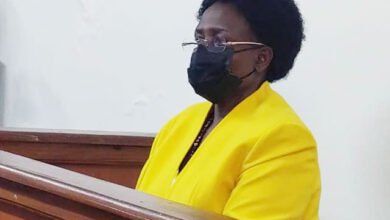Empower women and girls to champion the use of clean energy
This makes women vulnerable to the exposure of this pollution, which is detrimental to their health and leads to many diseases such as headaches, asthma, miscarriages, and other respiratory diseases.

Op-Ed: Editor, the media reported that electricity access and utilization are still low, which now stands at 28%, while the unit cost for ordinary consumers is 8.3 US cents, which is still expensive for consumers.
The lack of clean and affordable electricity has negatively impacted women and girls since they are the most energy consumers in terms of cooking, lighting, and many other domestic tasks at home.
This has created massive threats to the few remaining forests due to deforestation, where activities such as charcoal burning and firewood collection have been undertaken to meet people’s energy needs, and such activities have come at a high cost to women’s health, thus putting their lives at stake.
Notably, the World Health Organization (WHO) estimates that 4.2 million people who die from exposure to outdoor air pollution are women, yet they continue to struggle with energy challenges such as lack of clean energy access and the high power tariffs that make them perform cooking activities using dirty energy sources such as wood, coal, and kerosene that generate a lot of emissions, causing harmful indoor pollution.
This makes women vulnerable to the exposure of this pollution, which is detrimental to their health and leads to many diseases such as headaches, asthma, miscarriages, and other respiratory diseases.
In addition, the article published by World Access to Modern Energy (WAME) indicated that due to a lack of clean energy, women and young girls spend an average of 1.4 hours per day collecting firewood and several hours cooking. For instance, in Sierra Leone and Nigeria, fuel collection takes on average 5 hours per day, yet this time could be employed in more productive work.
Furthermore, women lacking access to modern cooking facilities are responsible for firewood collection. The International Energy Agency (IEA) estimated that the average firewood load carried by women for several miles daily varies from 25 to 50 kg. Such physical labor not only represents a poor use of women’s and young girls’ time, but it also has negative consequences for their postures and can cause back and muscle pain.
The use of biomass also fuels gender-based violence among women, which makes their mental health more likely to suffer than men, largely due to traditional gender norms where they say cooking primarily with charcoal and wood is meant for women and girls. Because of this, women using these emissions-related energy sources have approximately 50% higher odds of likely getting depression than those cooking with electricity, which contributes to their early death.
In a nutshell, the government needs to empower women and girls in clean energy programs to reduce their exposure to household air pollution, conserve the environment, reduce the number of trips they make to fetch firewood, and leverage the time saved to engage in other productive economic activities to enable them to pursue educational opportunities, especially for the young girls that are still in schools and other tertiary institutions.
This will help them improve the health lifestyle they are living in since they are mostly affected in the energy sector, particularly at the household level and also in businesses.
The author is Olive Atuhaire, Research Associate.
Disclaimer: As UG Reports Media LTD, we welcome any opinion from anyone if it’s constructive for the development of Uganda. All the expressions and opinions in this write-up are not those of UG Reports Media Ltd. but of the author of the article.
Would you like to share your opinion with us? Please send it to this email: theugreports@gmail.com.






